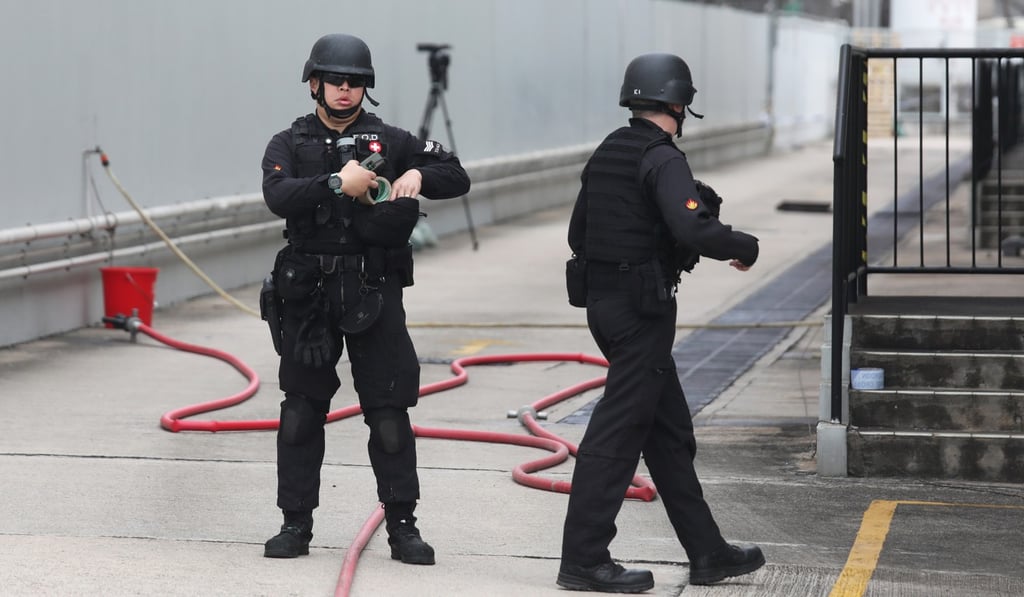Wartime grenade found buried in potatoes at Hong Kong Calbee chips factory
- Bomb disposal officers called out to defuse explosive after startling discovery in batch of potatoes from France

Hong Kong police on Saturday defused a wartime grenade at a potato chip factory after the explosive was found among a batch of fresh potatoes imported from France.
The device was believed to have been buried in a field where trenches were dug in the first world war, and later accidentally uncovered with harvested potatoes, packed and shipped to Hong Kong.
Officers said the grenade was about 8cm wide and had been discovered at around 9am by staff inside the Calbee plant on the Tseung Kwan O Industrial Estate. It weighed about a kilogram.
“We identified it as a German-made weapon believed to have been used during the first world war,” said Wong Ho-hon, the force’s Tseung Kwan O assistant district commander (operations).
“We chose to disarm it because it had not exploded at the time it was thrown so there was an immediate need to do so. We did it using a high-pressure water firing technique.”

The grenade was detected by one of the factory’s potato processing machines.